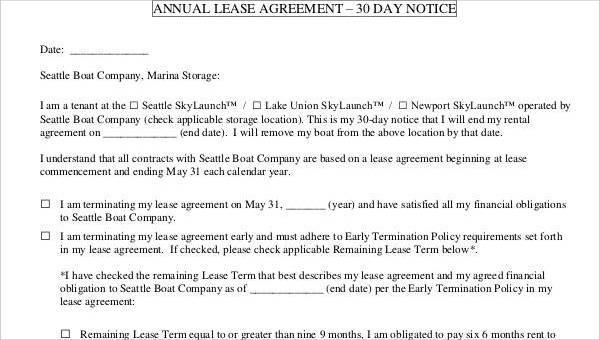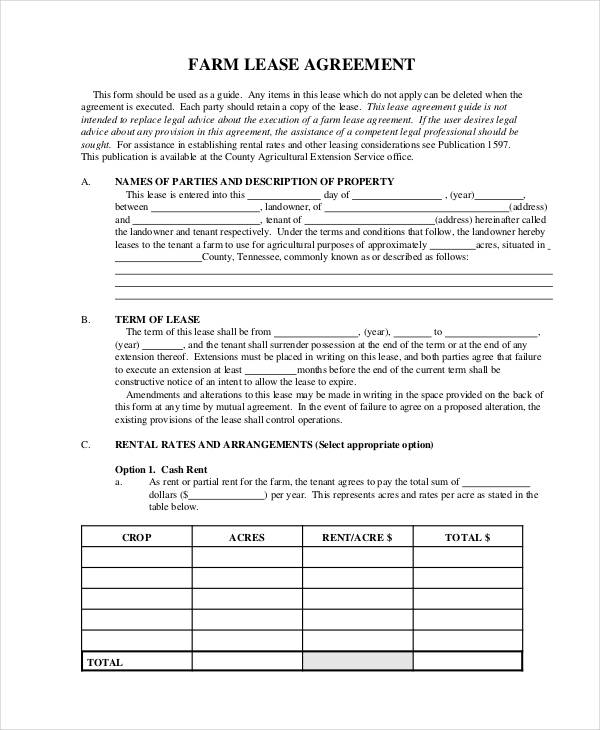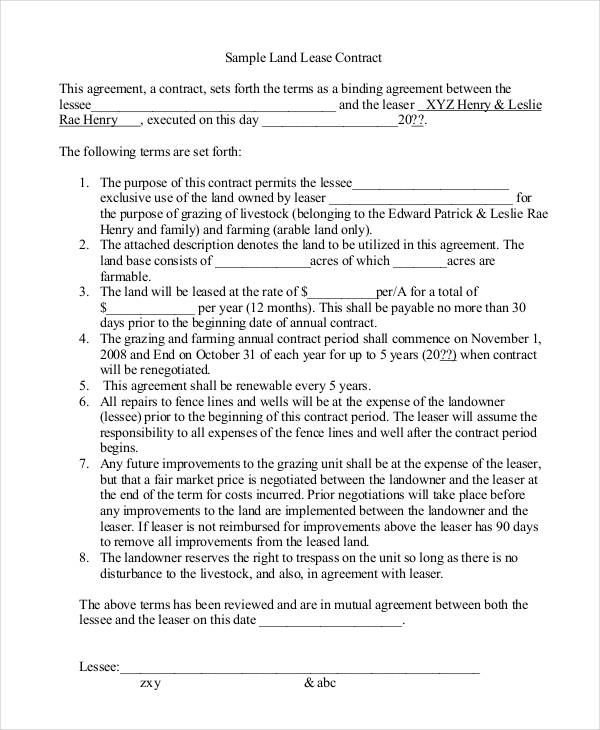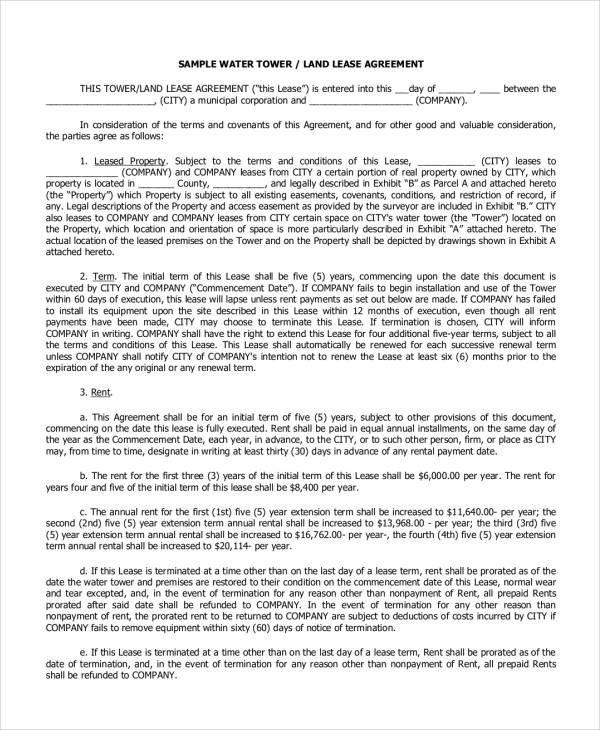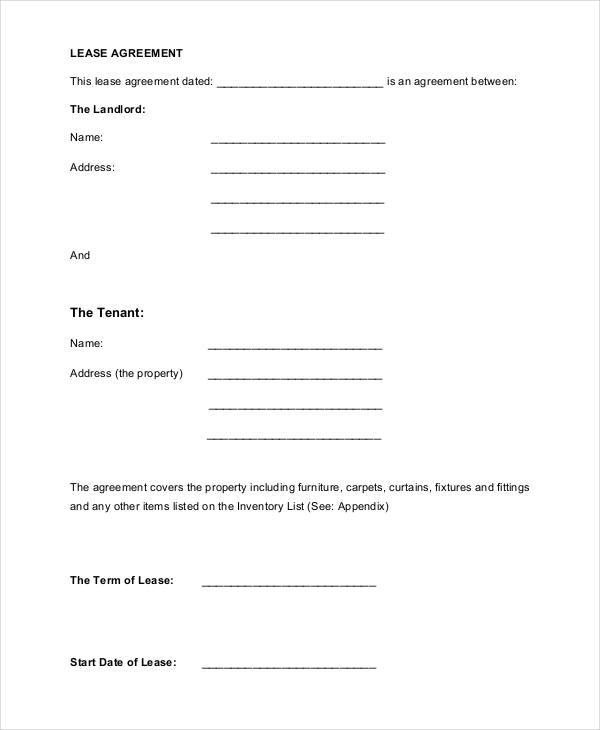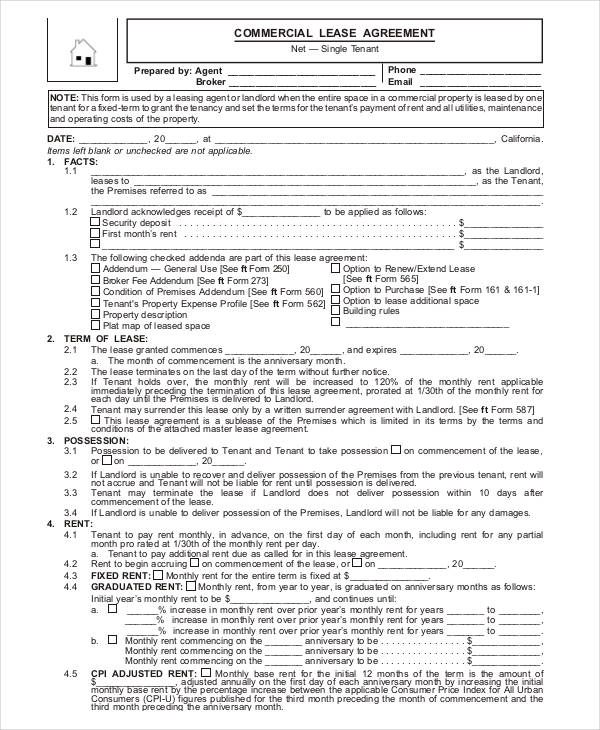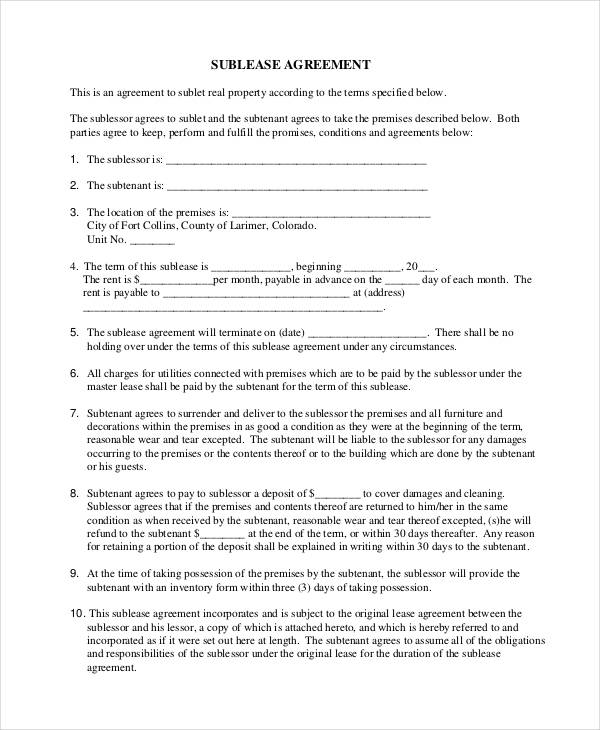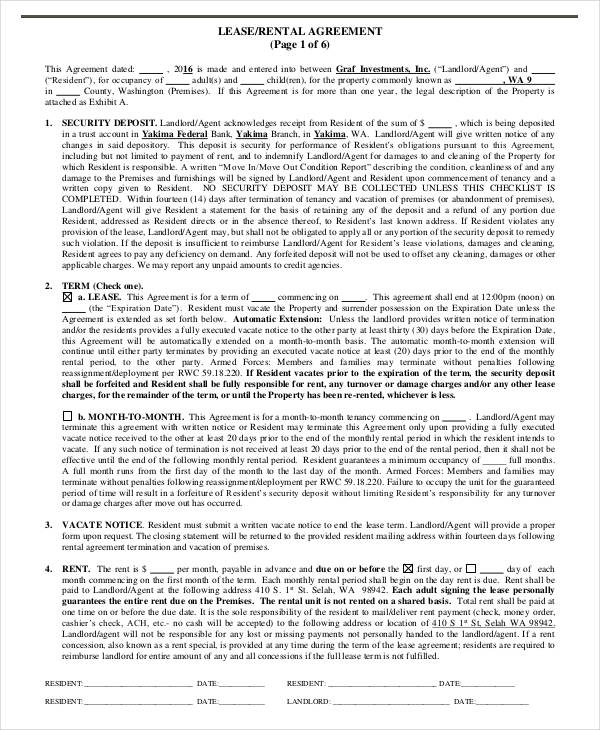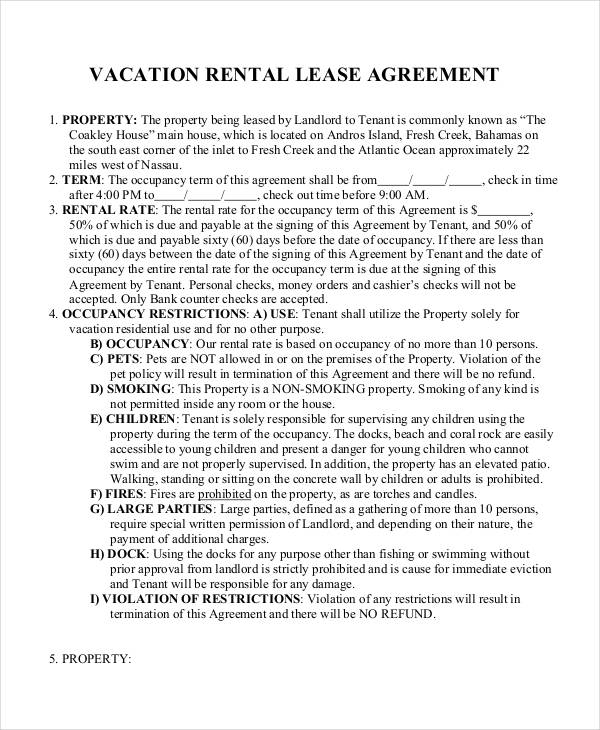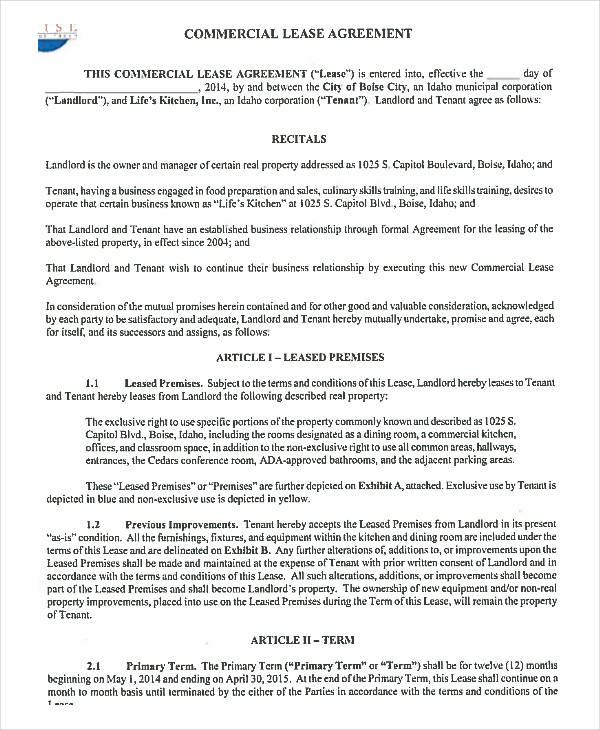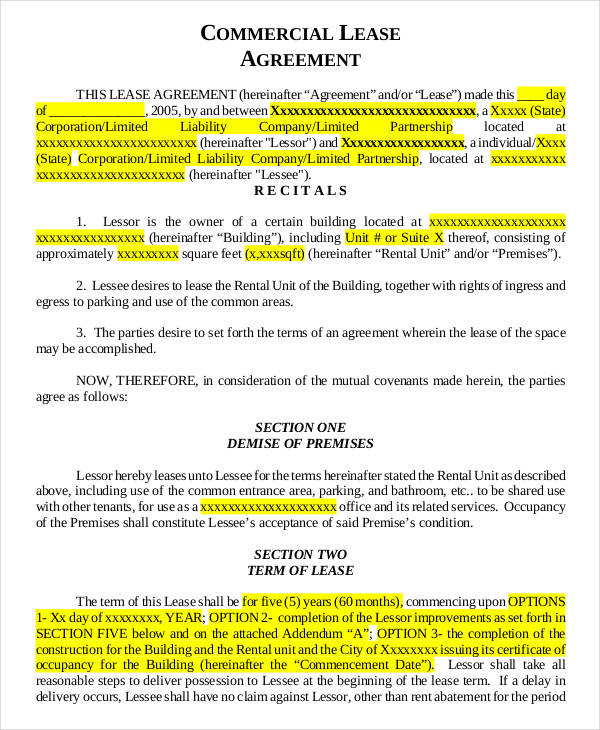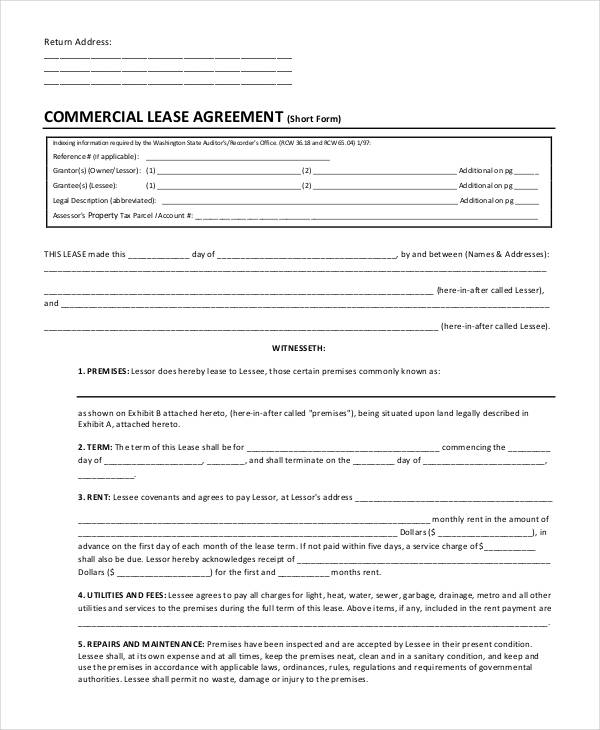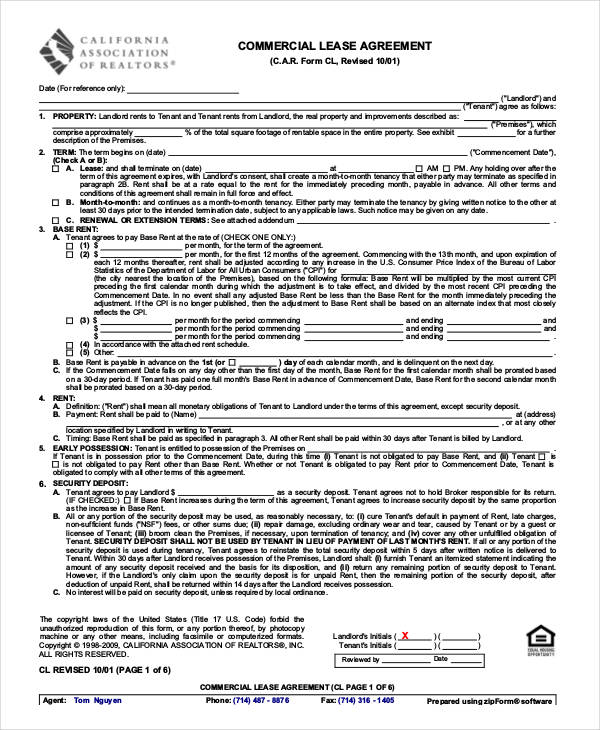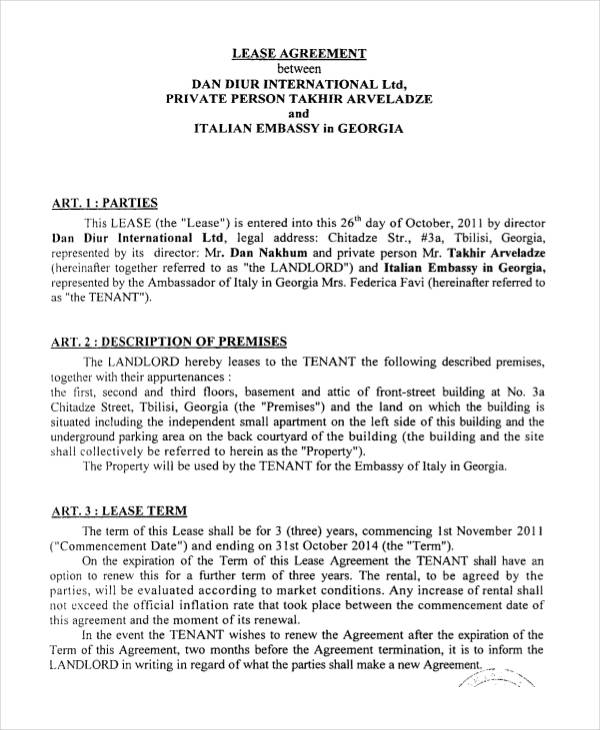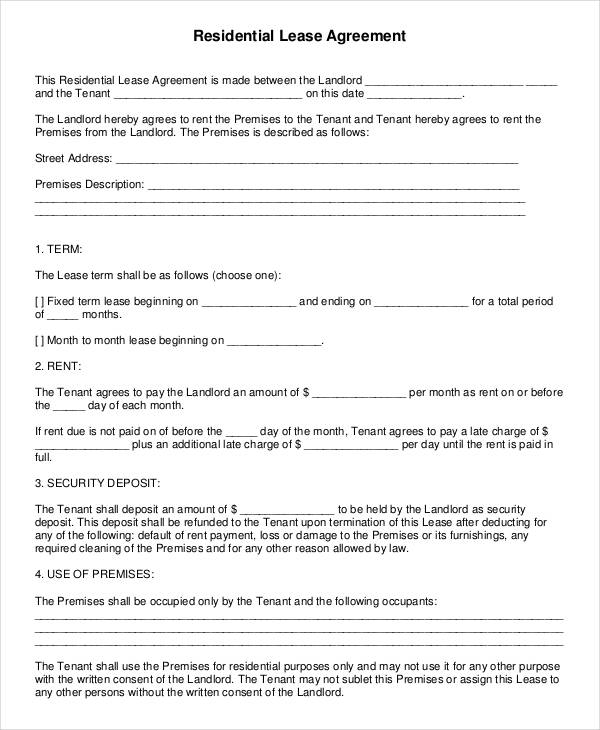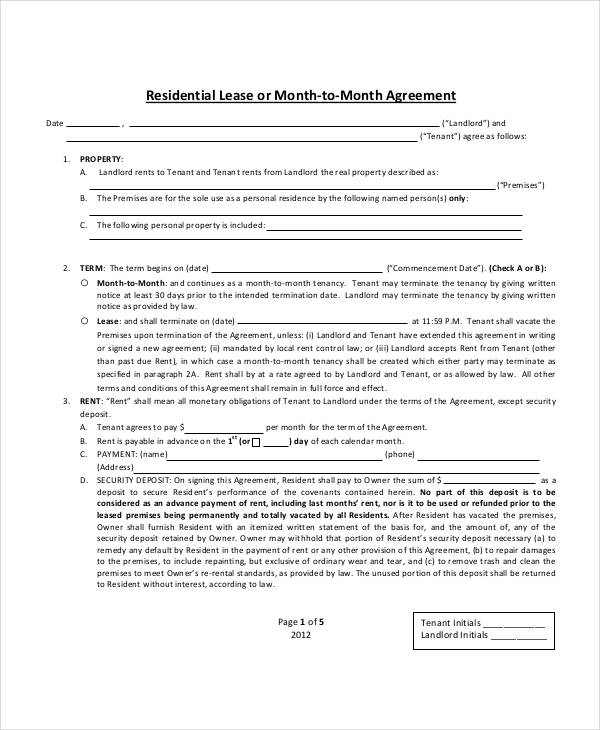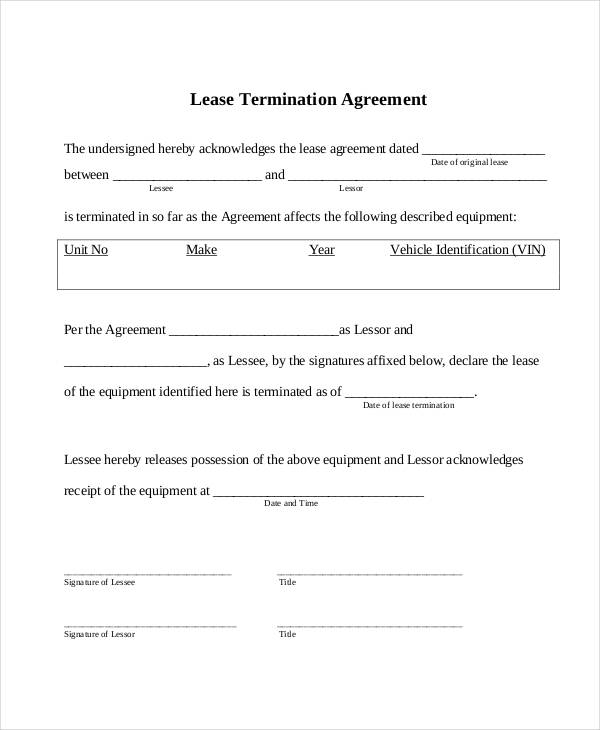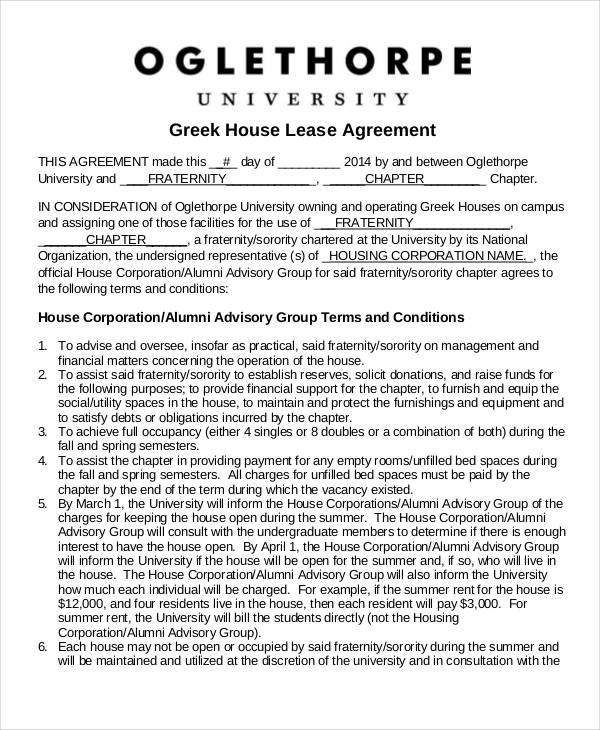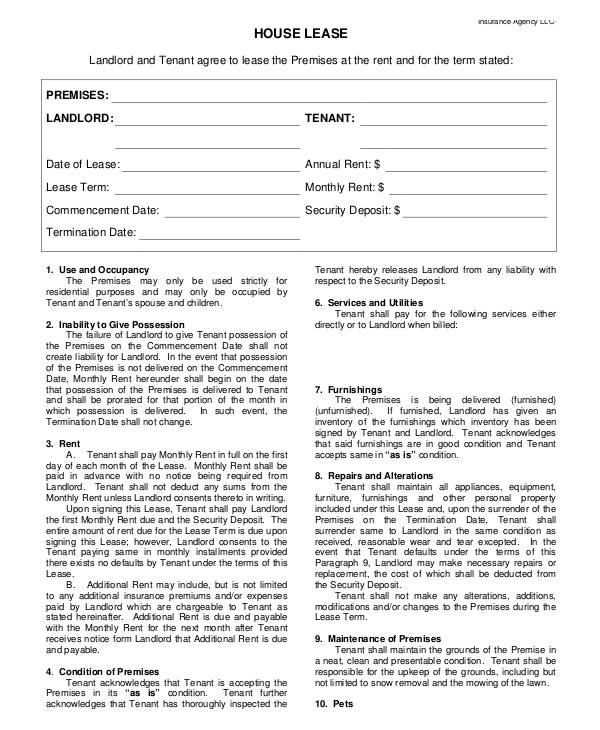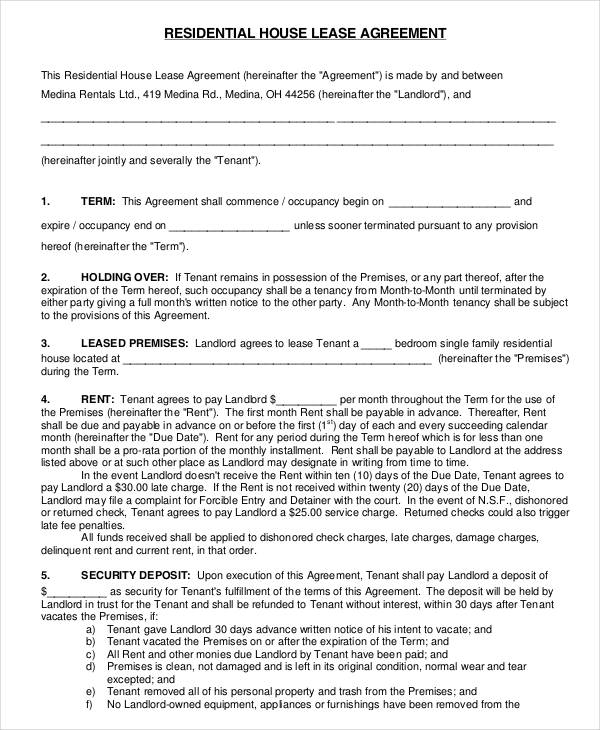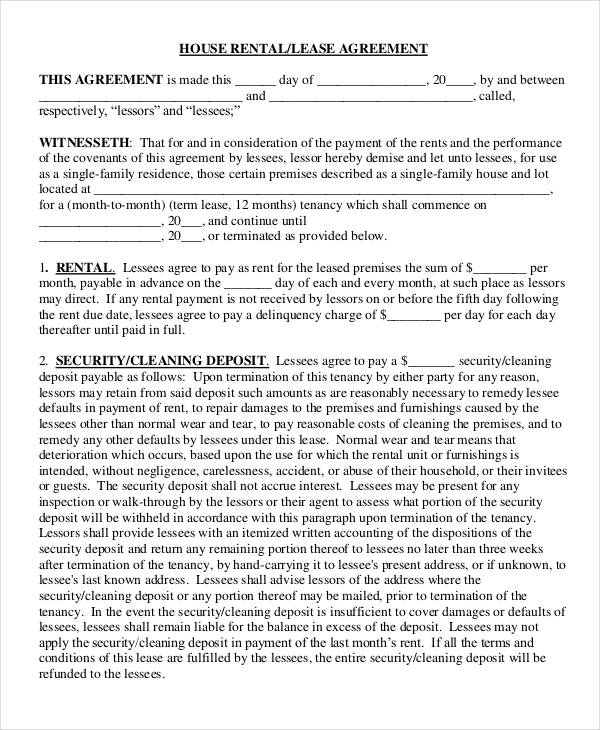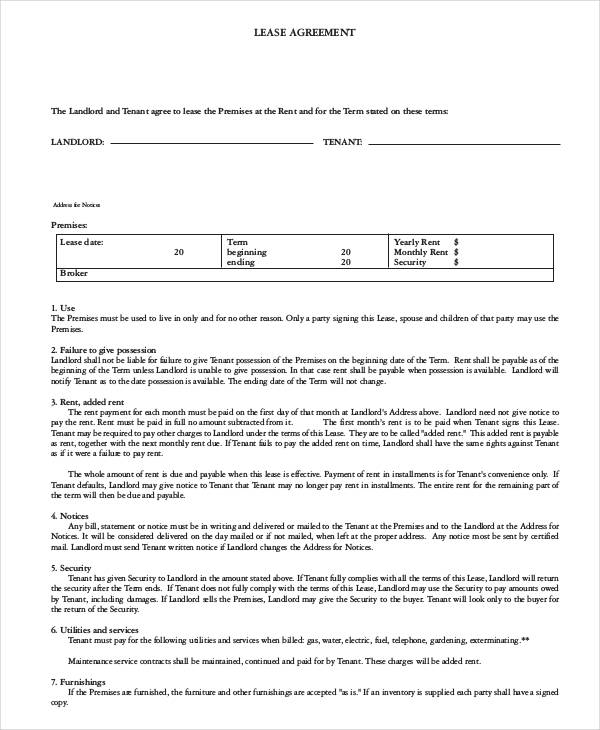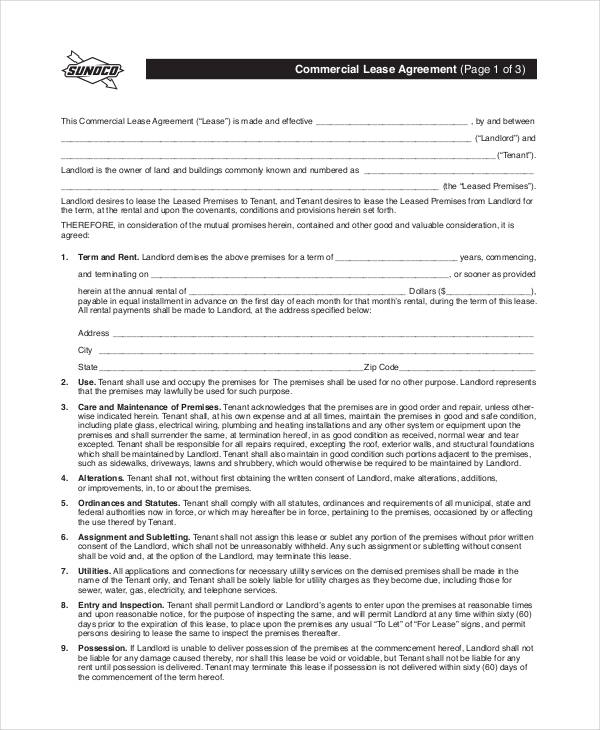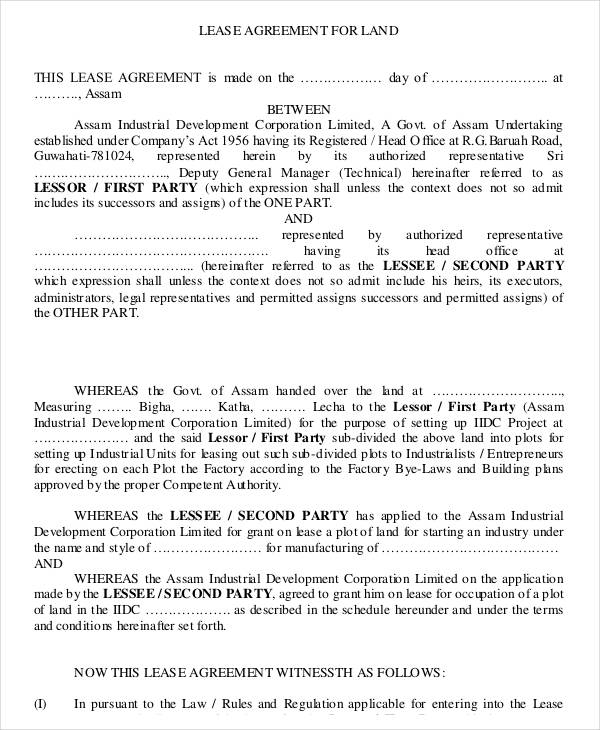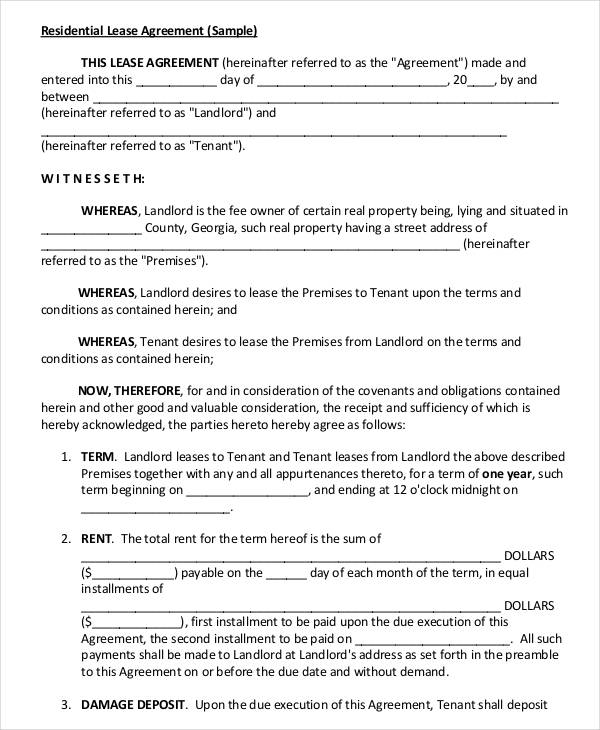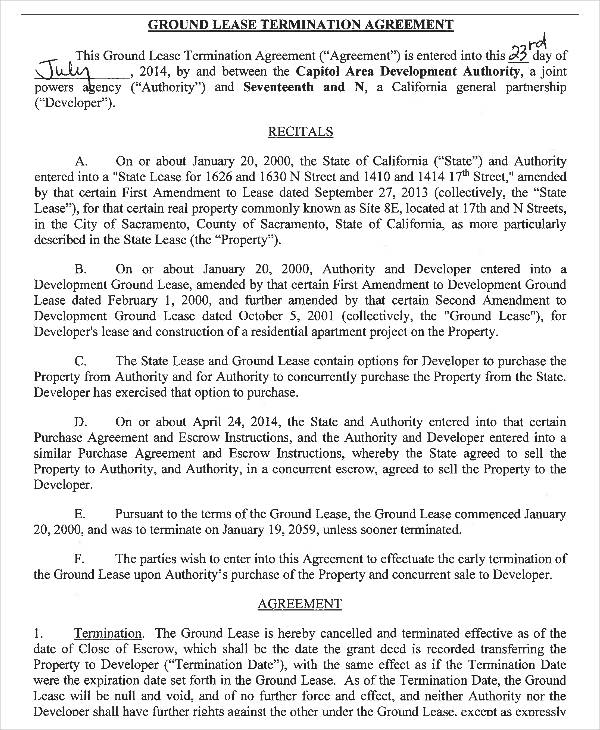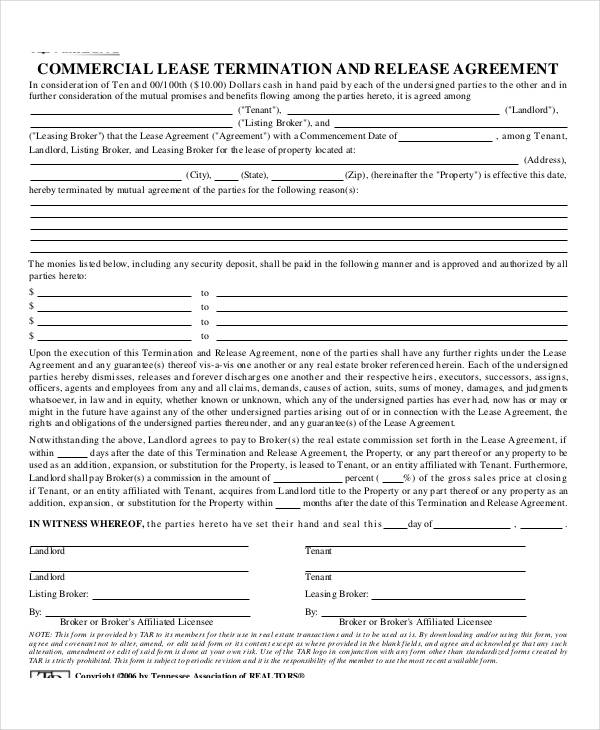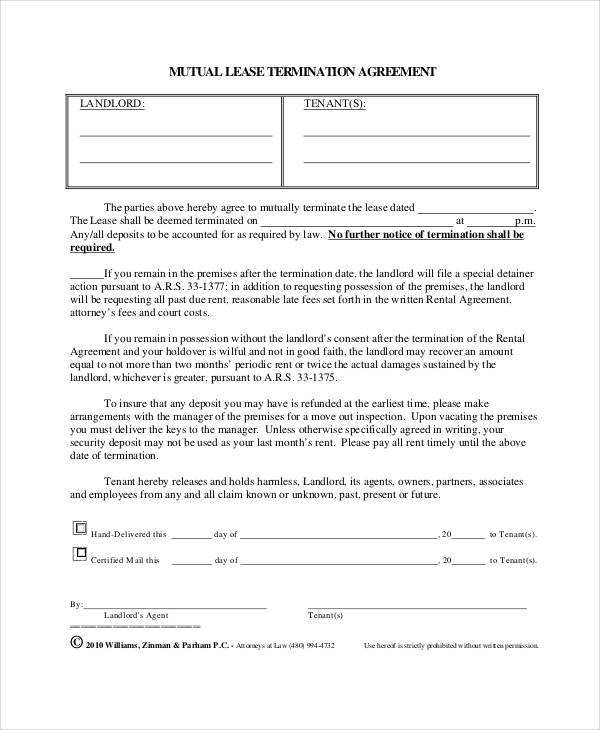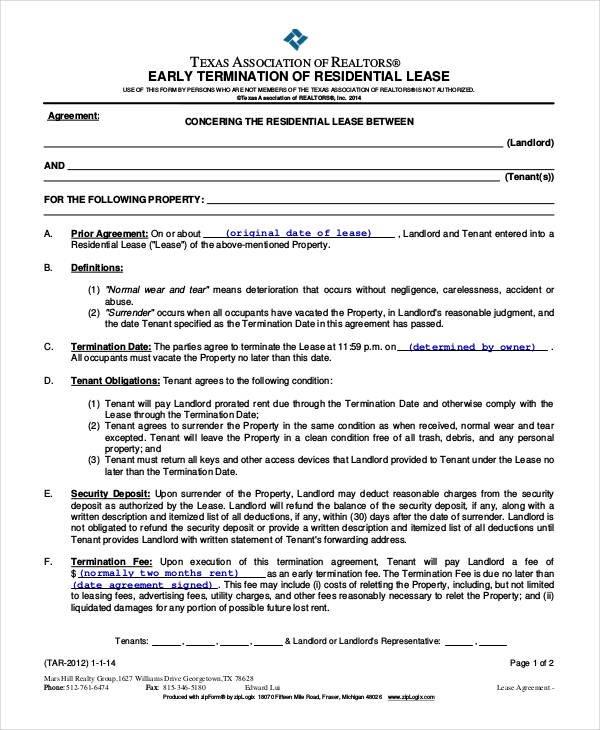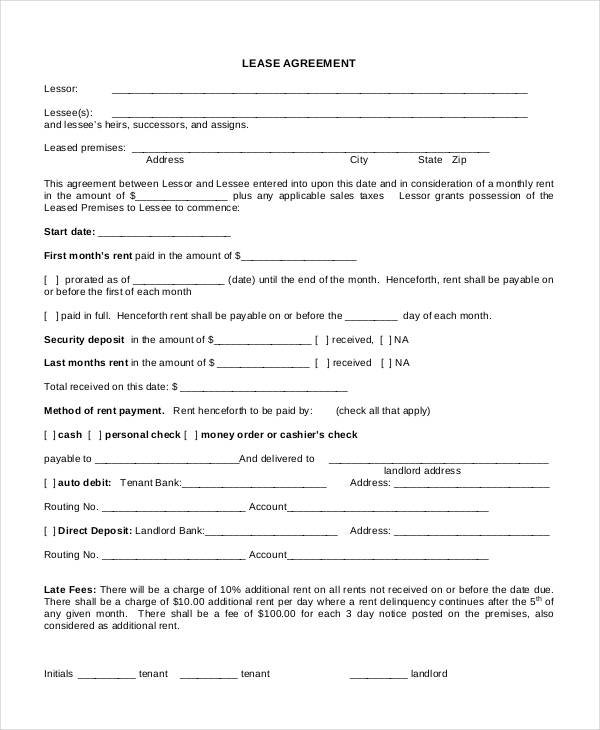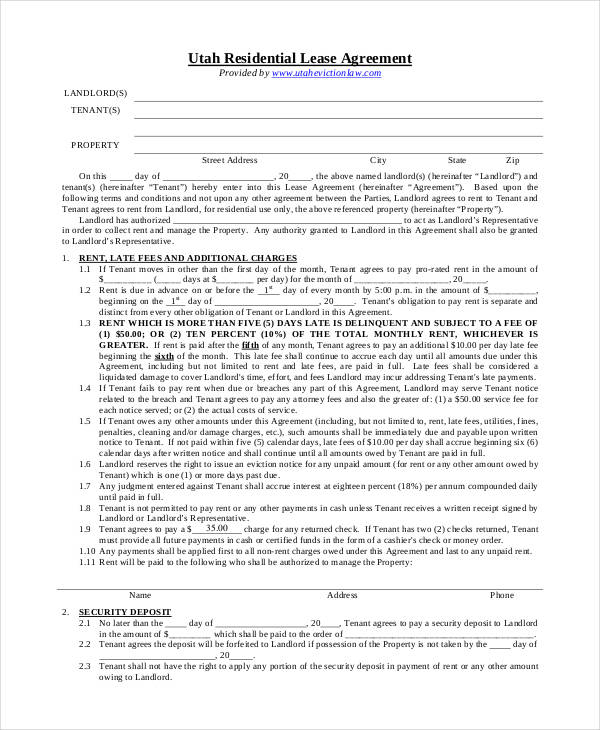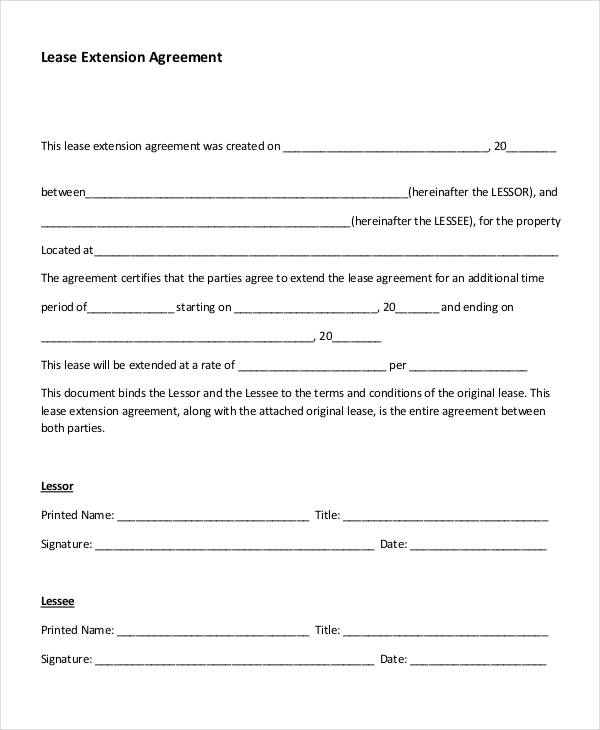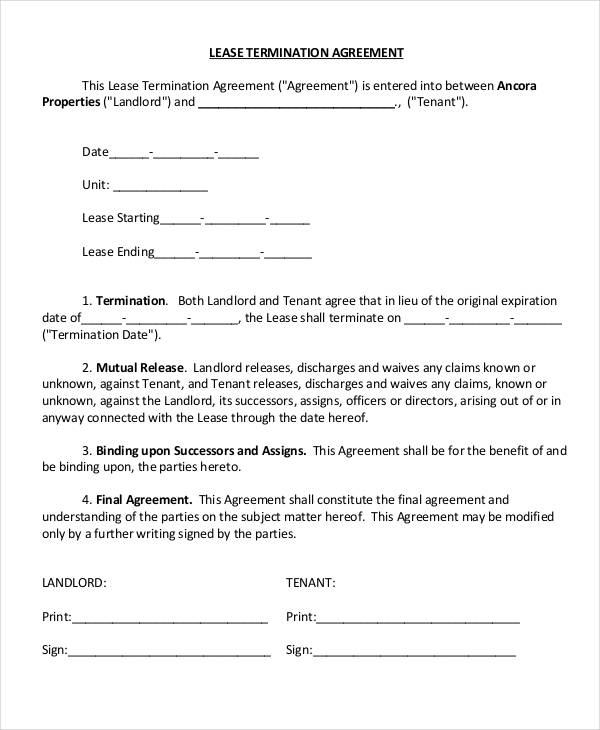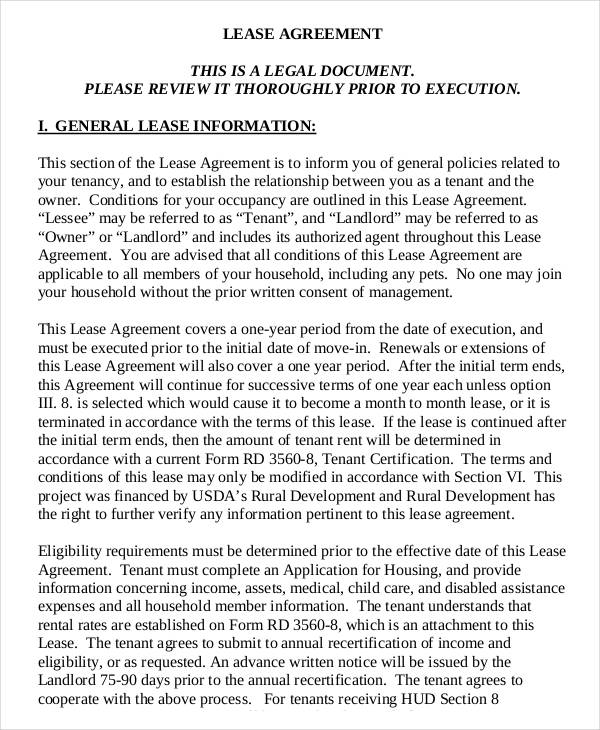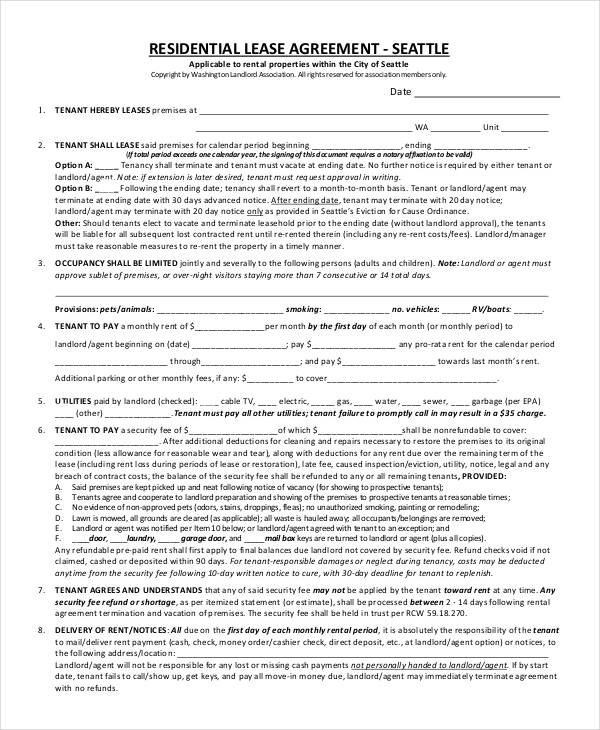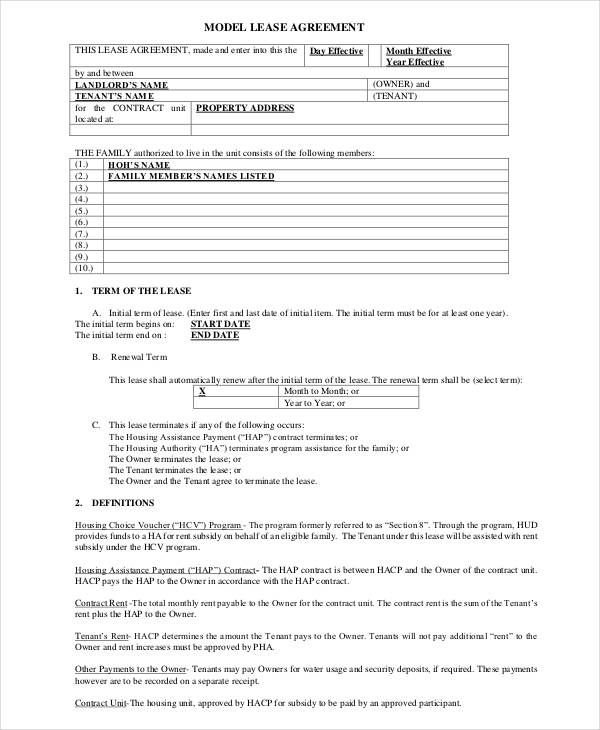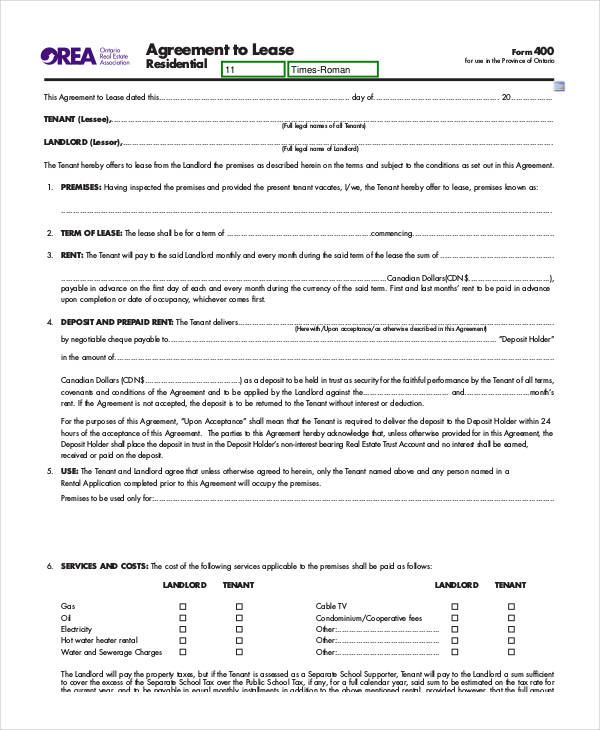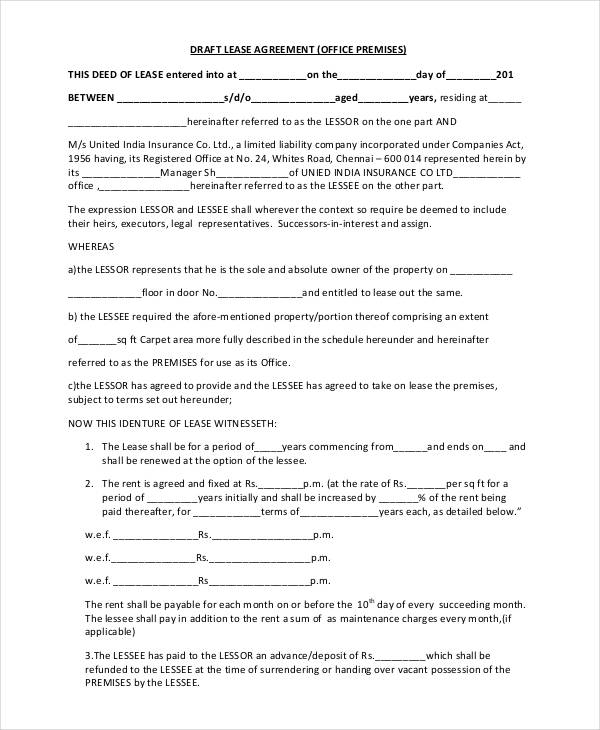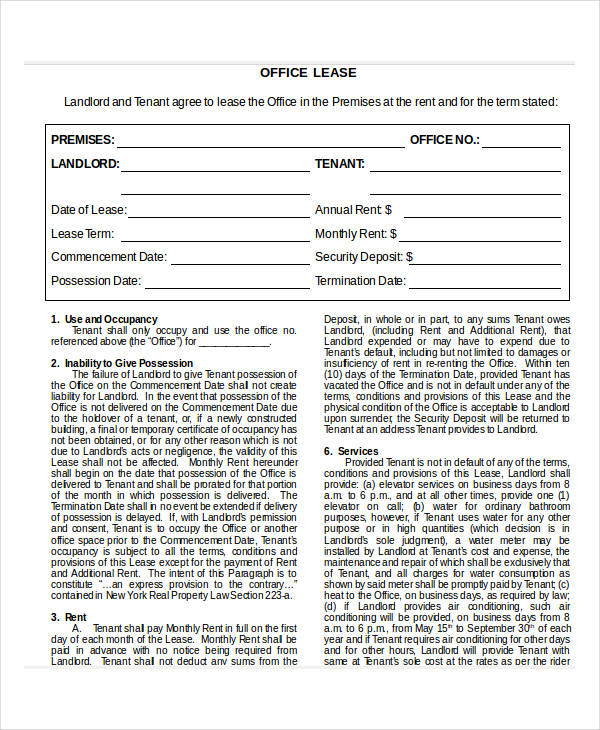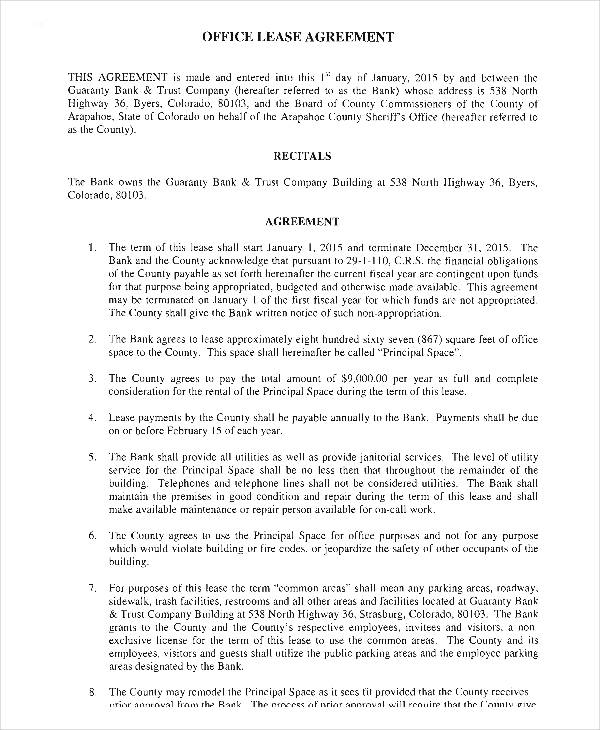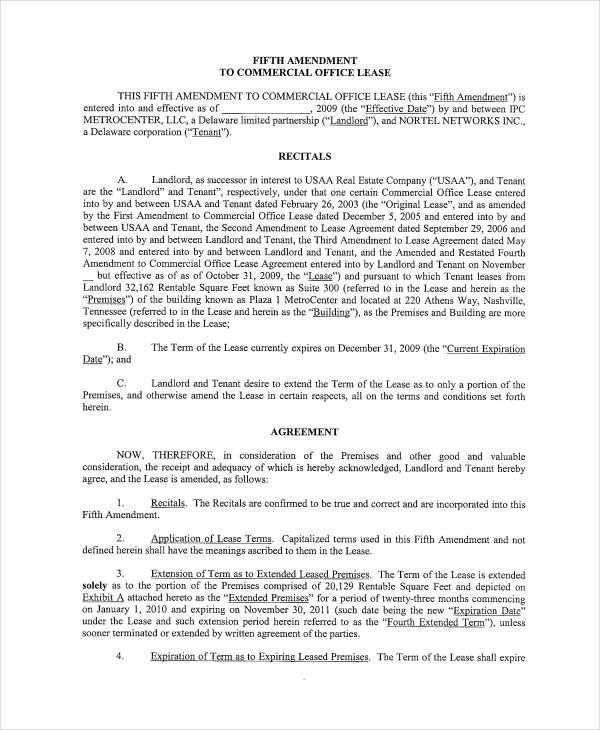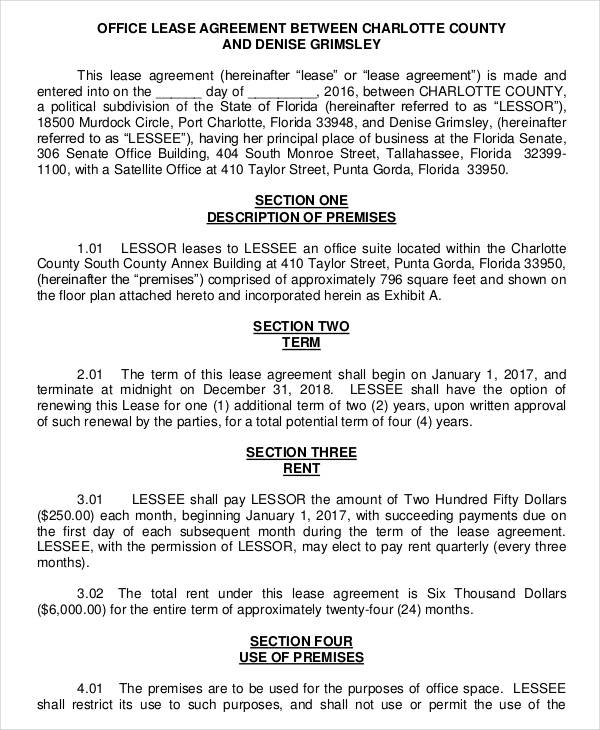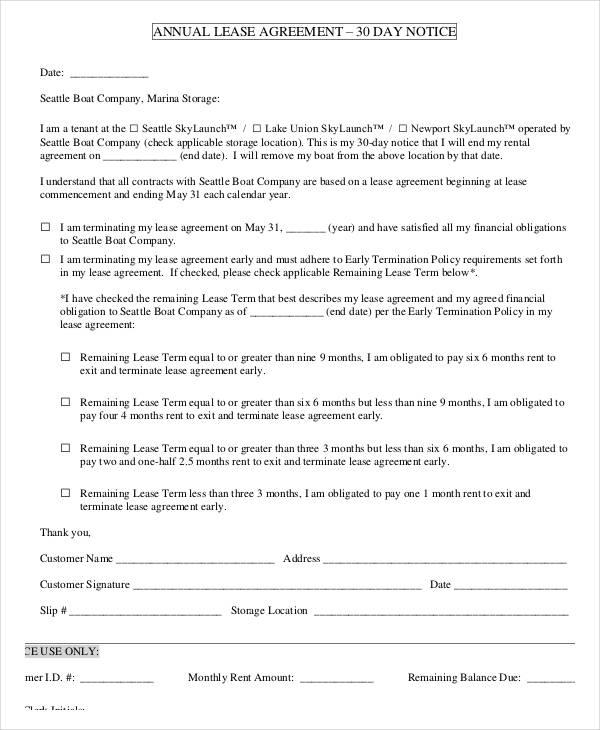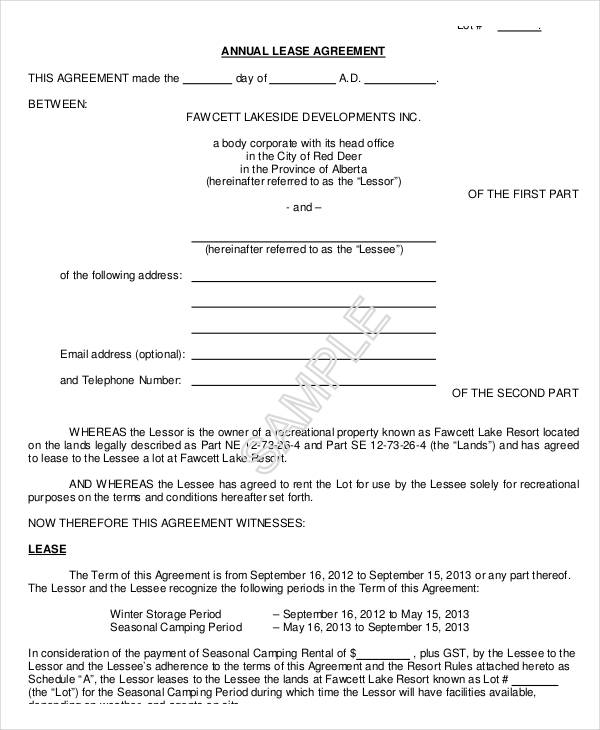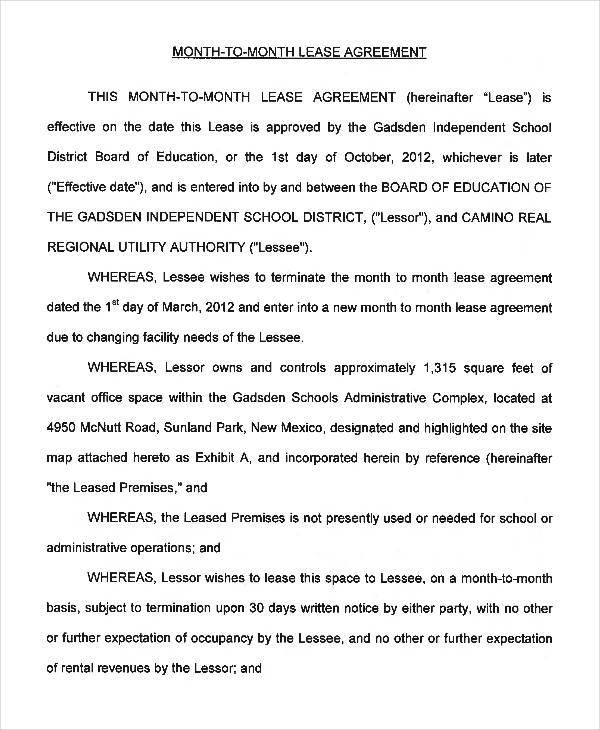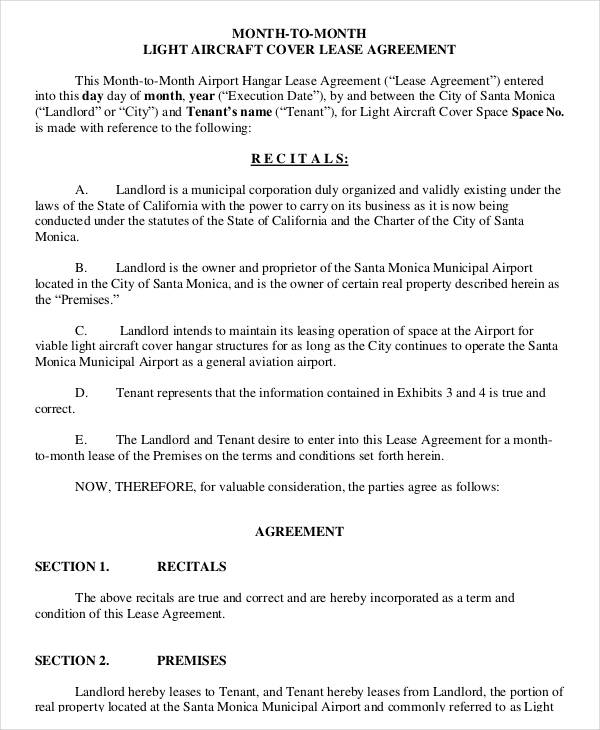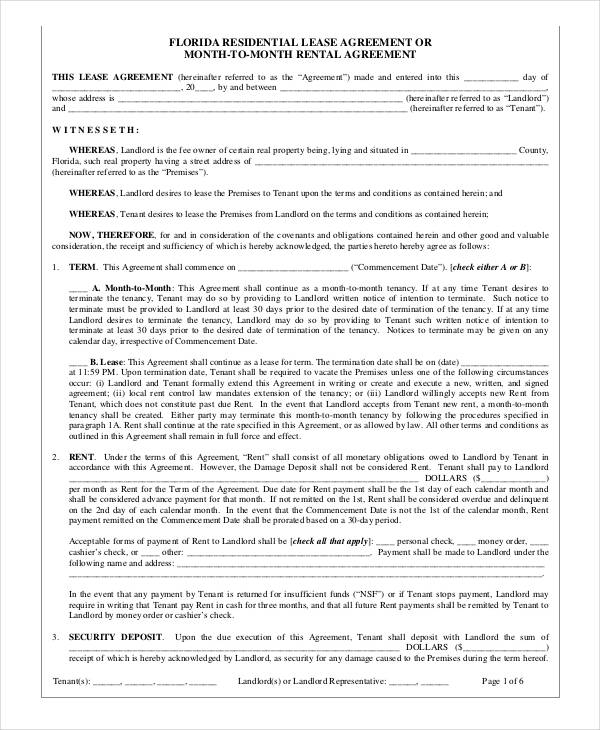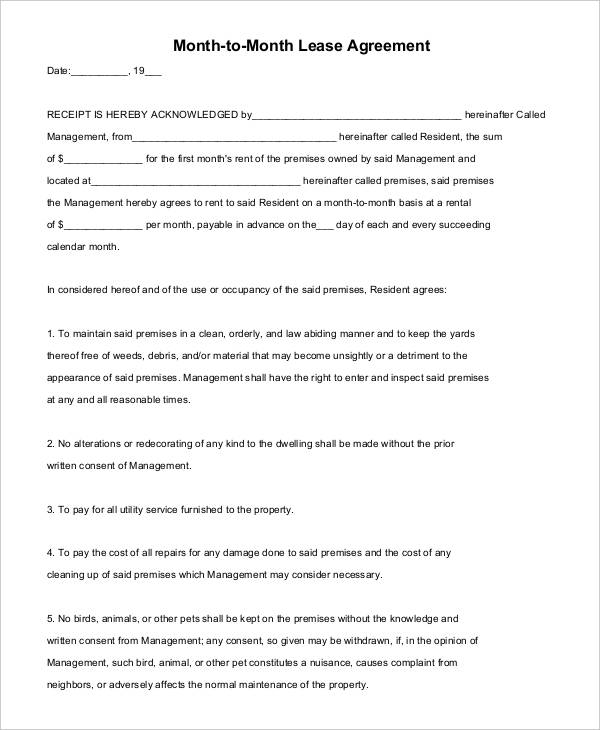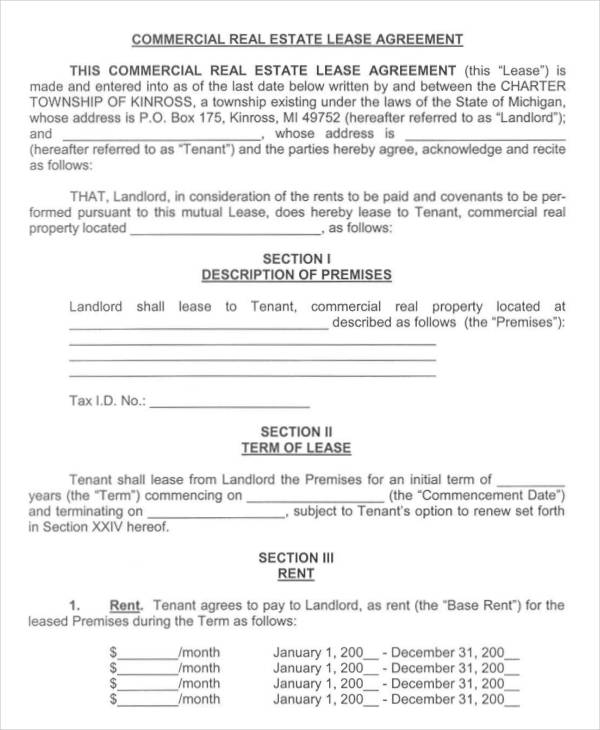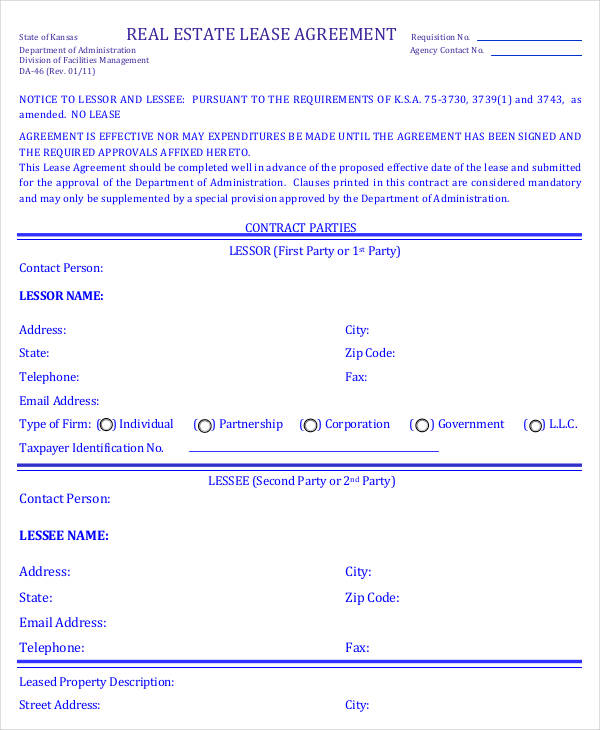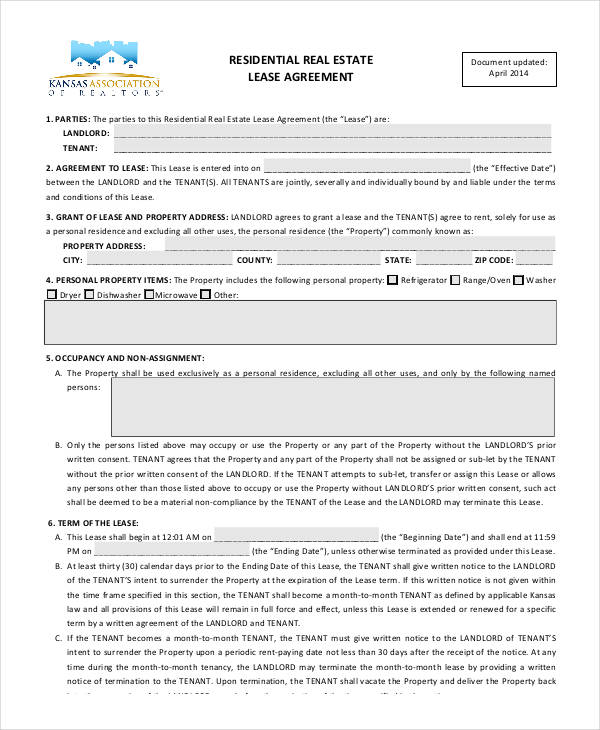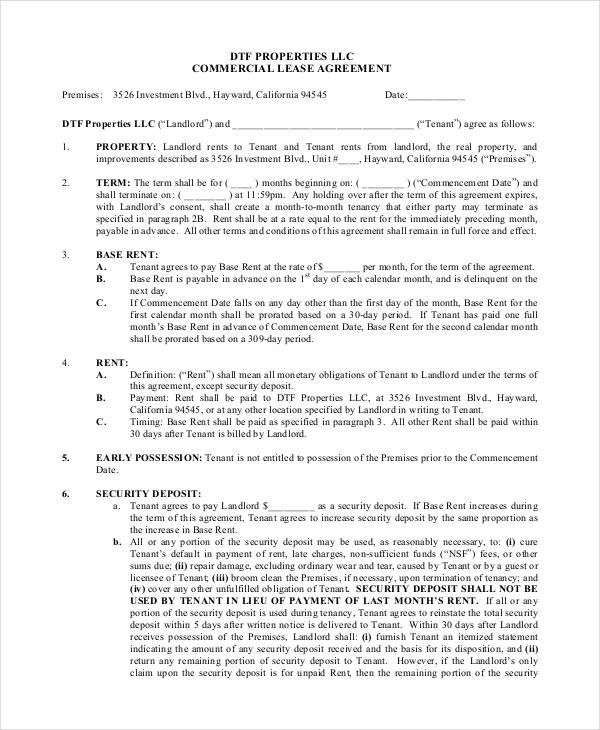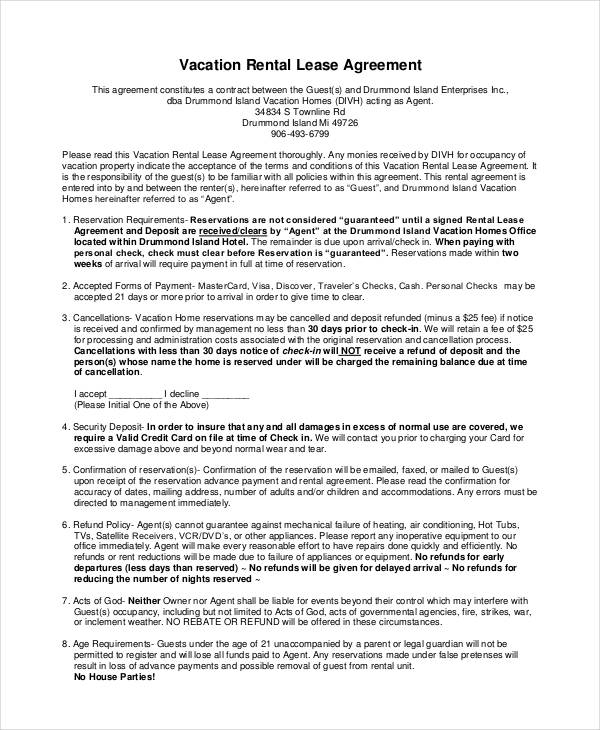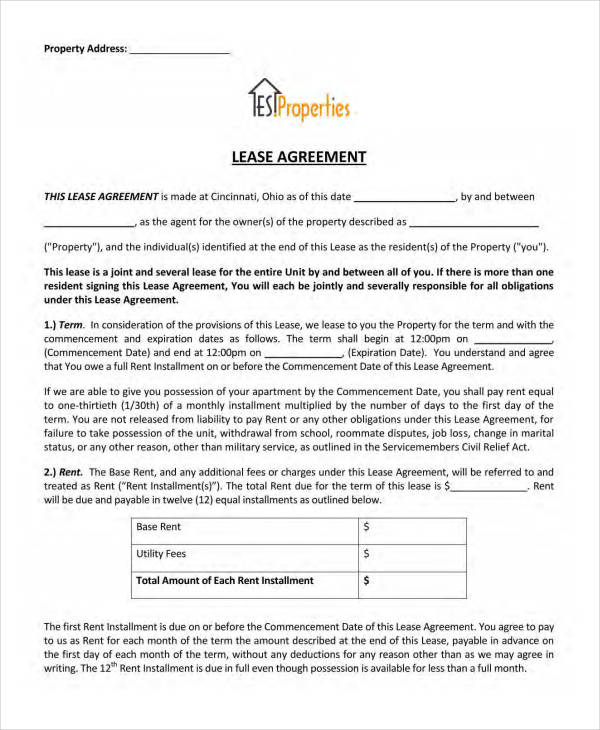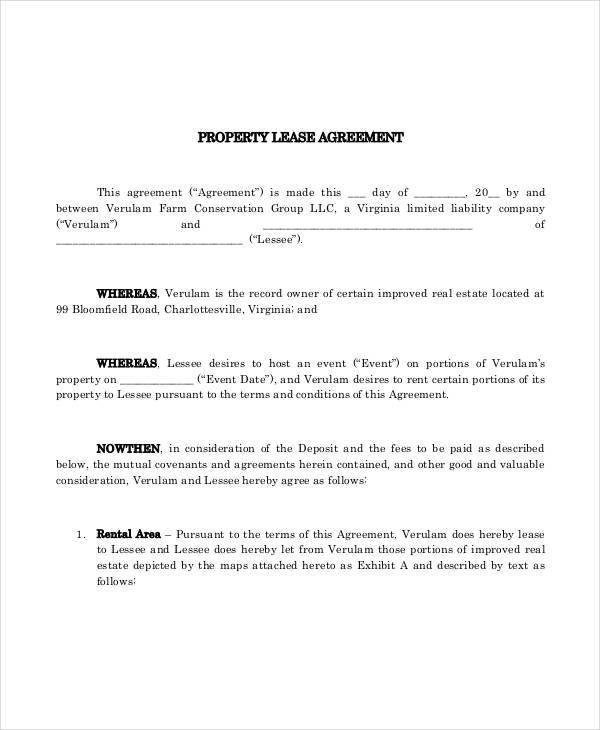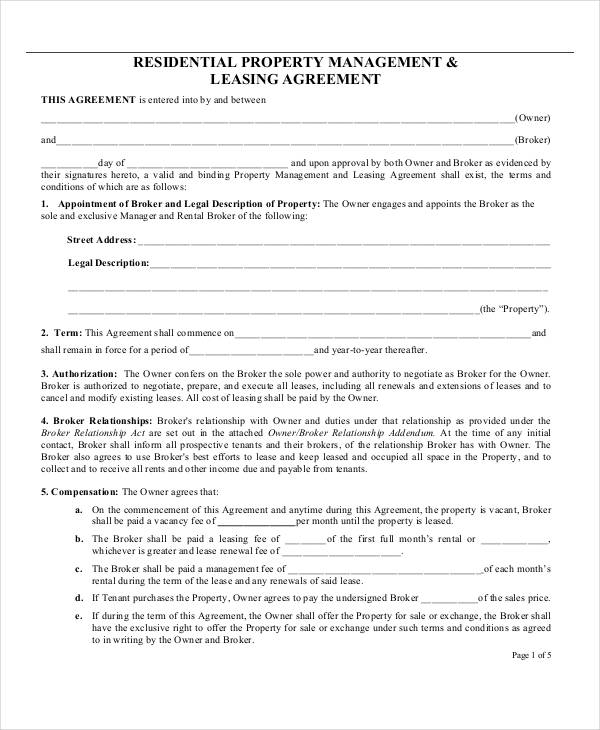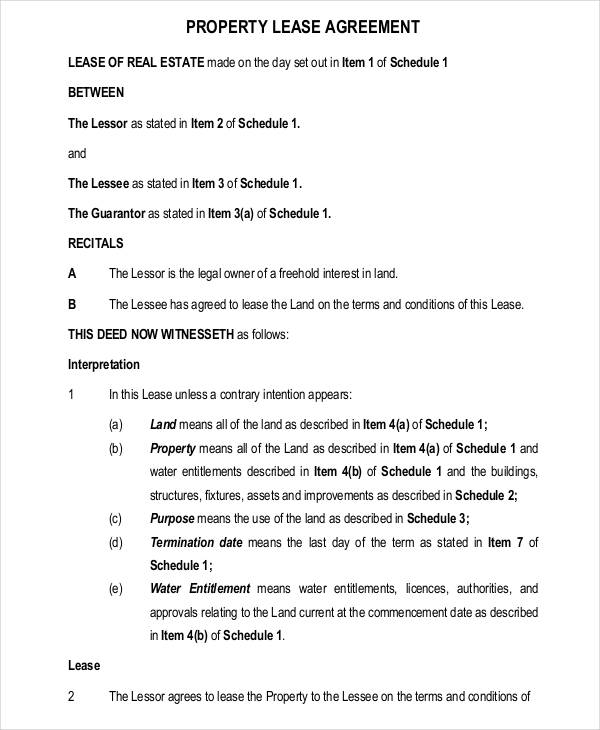Owning your own house can be a dream fulfillment for a lot of people. However, this may not always be an option for some. Aside from having to keep up with the huge commitment of paying a large amount for mortgage, the requirements for upkeep and applying for a loan can be pretty steep.
Sometimes. renting or leasing a property is the most viable option. A Lease is a written contract that is made between a tenant and a landlord wherein the tenant wishes to convey a property for a specific period of time or for a duration of time that is determinable by either the tenant or the landlord in exchange for rent or some other form of compensation.
Land Lease Agreement Forms
Sample Land Lease Agreement
Farm Land Lease Agreement
Land Lease Contract Agreement
Land Lease Agreement Format
Free Lease Agreement Forms
Free Printable Lease Agreement
Free Commercial Lease Agreement
Free Sublease Agreement
Free Lease/Rental Agreement
Rental Lease Agreement Forms
Vacation Rental Lease Agreement
Free Rental/Lease Agreement
Printable Rental Lease Agreement
Commercial Lease Agreement Forms
Sample Commercial Lease Agreement
Commercial Lease Agreement in PDF
Commercial Lease Agreement Form
Commercial Property Lease Agreement
Do Lease Agreements Have to Be in Writing?
A person who owns a leased or Rental Property is referred to as the landlord or the lessor while a person who rents such a property is referred to as the tenant or the lessee.
There are some instances where lease agreements are just verbally made. This is usual and common on room leasing within a private residence. However, even if not all Lease Agreements are mandated by law, it is still advisable to have them written as it can serve as a concrete proof that a particular lease transaction materialized. Having a written lease agreement also create assurance both on the tenant and the property owner that they are aligned in terms of how they understood the terms and conditions of the agreement as well as their obligations.
Although they are often interchanged, a lease and rental agreement slightly differ in definition, especially in the land-lording business.
A lease usually has a fixed term or duration, which is usually for a longer period of time such as six months to a year. When a Lessor and a Lessee agree to sign to the terms of a lease, neither one of them can change the conditions of the agreement until the lease expires – unless if the will to make modifications is mutual.
A rental agreement, on the other hand, renews from month to month. Rentals do not have a fixed duration of time for the tenant to reside in the rental property and renew at a 30-day period. As soon as a rental renewal is up, changes to the agreement can be made or the landlord can request the tenant to vacate the property; however, this depends on the laws of your state as some states require a 30-day notice for landlords who wish to evict tenants.
Rentals are a more viable option for landlords whose clients are usually those who are temporarily living in the area, such as students or professionals who often move around a lot. A lease, on the other hand, is much more fitting for people who plan on staying for a longer period of time, such as families or locals who live within the area.
The Benefits of Having a Written Lease Agreement
Written lease agreements can benefit both the tenant and the landlord. Below is a list of reasons why:
1. Provides Security for the Landlord and the Tenant
Written lease agreements can provide a great relationship to the landlord and the tenant as it can properly layout all the items that both parties need to know of. If you think that landlords are the only people who benefit from the usage of the specified document, then think again. Tenants can be more secured that they have the rights of the property within the validity of the tenancy if there is a lease agreement that they have signed and have a copy of. If you are a tenant, then having a lease agreement can greatly benefit you since it allows you to treat your place of residence as if it were truly yours and you can customize and decorate your area according to your preference.
2. Longer Period Terms
One other advantage of leases is that they tend to last for longer periods of time. This is essentially helpful in the economic side of things because it means that resource costs are fixed and that you do not have to worry about sudden rental increases or rental fees due to economic fluctuations until your lease is up.
3. Protect the Rights of Both Tenants and Landlords
Lastly, a written lease agreement aims to protect the rights of both the landlord and the tenant. Since leases allow landlords to properly lay down the terms and obligations of both parties, each one is entitled to his own rights. For example, landlords can set expectations for tenants at an earlier time, especially for terms relating to security deposits, advanced deposits, and repairs made if the damage to the property was incurred by a tenant. If you are on the other side of the spectrum and you are a tenant, your right for privacy is one of the most important thing that you can have protection with if you have a signed copy of an agreement. There are other items that you can also benefit from depending on the content of the contract that you will sign at for your tenancy.
Sample Lease Agreement Forms
Free Sample Lease Agreement
Sample Residential Lease Agreement
Sample Month-to-Month Lease Agreement
Sample Lease Termination Agreement
House Lease Agreement Forms
House Lease Agreement in PDF
House Lease Agreement Format
Residential House Lease Agreement
House Rental/Lease Agreement
Blank Lease Agreement Forms
Free Blank Lease Agreement
Blank Commercial Lease Agreement
Blank Land Lease Agreement
Blank Residential Lease Agreement
Lease Termination Agreement Forms
Ground Lease Termination Agreement
Commercial Lease Termination Agreement
Mutual Lease Termination Agreement
Residential Lease Termination Agreement
Lease Agreement Form in PDF
Lease Agreement Sample in PDF Format
Residential Lease Agreement in PDF
Lease Extension Agreement
Lease Termination Agreement in PDF
The Advantages of Leasing a House
Although buying a house is almost everyone’s dream and is a means to measure one’s achievement in life, a lease also has certain advantages that could help you financially. Here’s why:
Free Repairs and Maintenance
The cost for home upkeep is reserved for Homeowners and not tenants. If you rent a property, you only have to worry about rental fees and utilities. Repairs and maintenance costs are almost often shouldered by the landlord unless the tenant is the one who incurred the damage. Broken appliances, pest infestation, lawn care, and appliance tune-ups are all covered by the maintenance services offered by the landlord.
Offers Flexibility and Practicality
Because a leased property is only technically yours until it is up for renewal, you then have the option to move out when the term is up. However, if you own a house and you want to move somewhere else, you would first need to put your house up for sale and find a decent buyer. This process can take time, and so too will finding a buyer who will be able to meet the selling price on the house. There is also a huge possibility that the house may not sell at all, or it may sell for much less than what it actually costs due to economic conditions. A lease, on the other hand, allows you flexibility of location options for residency.
Does Not Need Huge Amounts of Financial Investment
Leasing does not require a significant amount of money for a down payment and does not require securing a home loan. It only requires the approval of a landlord, a security deposit, and an advanced payment of your first and last month’s rent. So all you really need to make sure is that your records are clean in order to gain the approval of your landlord during the screening or verification process.
Also, leasing a home does not add to your already long pile of debts and accumulated costs of having to own a home. Take note that owning a home has expenses such as property taxes, insurance, interests, and mortgage. So leasing can actually be a more viable option if your budget is limited.
Legal Lease Agreement Form
Free Legal Lease Agreement
Printable Lease Agreement Forms
Printable Residential Lease Agreement
Printable Commercial Lease Agreement
Printable Model Lease Agreement
Printable Lease Agreement Form
Office Lease Agreement Forms
Office Lease Agreement in PDF
Office Lease Agreement in Doc
Office Lease Agreement Sample
Commercial Office Lease Agreement
Simple Office Lease Agreement
Annual Lease Agreement Forms
Annual Lease Agreement Sample
Free Annual Lease Agreement
Month-to-Month Lease Agreement Forms
Month-to-Month Lease Agreement in PDF
Month-to-Month Light Aircraft Lease Agreement
Residential Month-to-Month Lease Agreement
Simple Month-to-Month Lease Agreement
Real Estate Lease Agreement Forms
Commercial Real Estate Lease Agreement
Sample Real Estate Lease Agreement
Residential Real Estate Lease Agreement in PDF
Standard Lease Agreement Forms
Standard Commercial Lease Agreement
Standard Vacation Rental Lease Agreement
Property Lease Agreement Forms
Property Lease Agreement in PDF
Simple Property Lease Agreement
Residential Property Management Lease Agreement
Free Property Lease Agreement
Contents of a Rental Lease Agreement
There are no specific formats established for creating a Lease Agreement. However, most lease agreements contain basic details or information that are essentially useful for establishing terms and conditions to avoid misunderstandings and misinterpretations:
1. Names of All the Parties Involved – Names of all parties involved in the contract should be indicated in the agreement, such as the names of the landlord and the tenant. Contracts and agreements are primarily established in order to seal deals and to set proper expectations. One way of setting proper expectations among your renters is to establish a clear indication of the allowed number of tenants in one rental unit and for only those who have signed the contract. Applying this field in your lease contracts will guarantee you that the only people residing in your rental property are those who have been properly screened.
2. Provide the Time Frame of the Lease – The end date of the contract is usually the renewal date of the lease. Leases usually last for a period of 6 months up to a year; however, some leases last for more than a year. Because leases usually last for a long period of time, the duration of the lease should be determined by both parties and then indicated in the contract.
3. Rental Fees and Payment Terms – Specify the amount of rent that is due for the lease. Because leases cover a longer duration, they also typically cost more than rentals. Your lease agreement contract should indicate the amount of rent due. If the payments are staggered, then the installment schedules have to be clearly set out in the contract together with the landlord’s preferred mode of payment such as online transfers, personal checks, or cash.
Other fees or penalties should also be stated in your lease agreement contract. Some landlords charge penalties for tenants who are unable to pay on time or for bouncing checks. Providing a clear outline of payment terms helps to set proper expectations on your renters and reduces the chances of tenants who make late payments.
4. Terms for Advanced Rental Payment – Advanced rental payment is the full or the partial payment of rent that is made by a tenant for a future period of time. Advance rent is often a prerequisite for landlords to tenants as a means of protecting themselves from tenants who move out at the end of the lease term without paying for the final month. Advance rental fees are usually a prepayment of the tenant’s last month of rent.
5. Terms for Security Deposit – Apart from the advance rental fee, a security deposit is an amount of money taken by the landlord from the tenant prior to renting a property. Security deposits are often used to protect the landlord in instances wherein the tenant violates the terms of the lease or are used to pay for costs to repair any damage that a tenant has incurred to the property, such as cleaning services or key replacement.
Terms relating to both the security deposit and the advance rent and the conditions for a refund should be properly expressed in the contract to avoid misunderstandings in the future.
6. Terms and Guidelines for Repair and Maintenance – It is typically the landlord’s responsibility to shoulder the costs for repairs and maintenance. However, if the damage to the property was incurred by the renter, then the expenses will be taken from the renter’s security deposit or out of pocket.
7. Policies and Restrictions – Some landlords have stringent house rules and policies. It is a tenant’s obligation to abide by these rules or be evicted. Common house rules usually relate to house pets, illegal business, excessive noise, and disruptive behavior. All of these terms need to be properly indicated in your contract if you want to have the right to call out a tenant’s attention for violating a rule.
When making a Rental Agreement Form, it is essential for you to make sure that you have all the details that should be written and agreed upon by the tenant and the landlord. If you are having a hard time in making this document and putting together all the information that you would like to discuss, using templates of Room Rental Agreement Forms can help you a lot in developing an agreement that is formal, effective, and cohesive.
Related Posts
Consignment Agreement Form
Room Rental Agreement Form
Hold Harmless Agreement Form
Rent Lease Agreement
Vehicle Purchase Agreement
Personal Loan Agreement Form
Payment Agreement
Promissory Note Agreement Form
Business Agreement Form
Tenancy Agreement Form
FREE 9+ Sample Roommate Agreements in PDF | MS Word
FREE 10+ Sample Operating Agreement Forms in PDF | MS Word
FREE 9+ Sample Settlement Agreement Forms in PDF | MS Word
FREE 9+ Sample Equipment Lease Agreement Forms in PDF | MS Word
FREE 10+ Sample Pet Agreement Forms in PDF | MS Word
